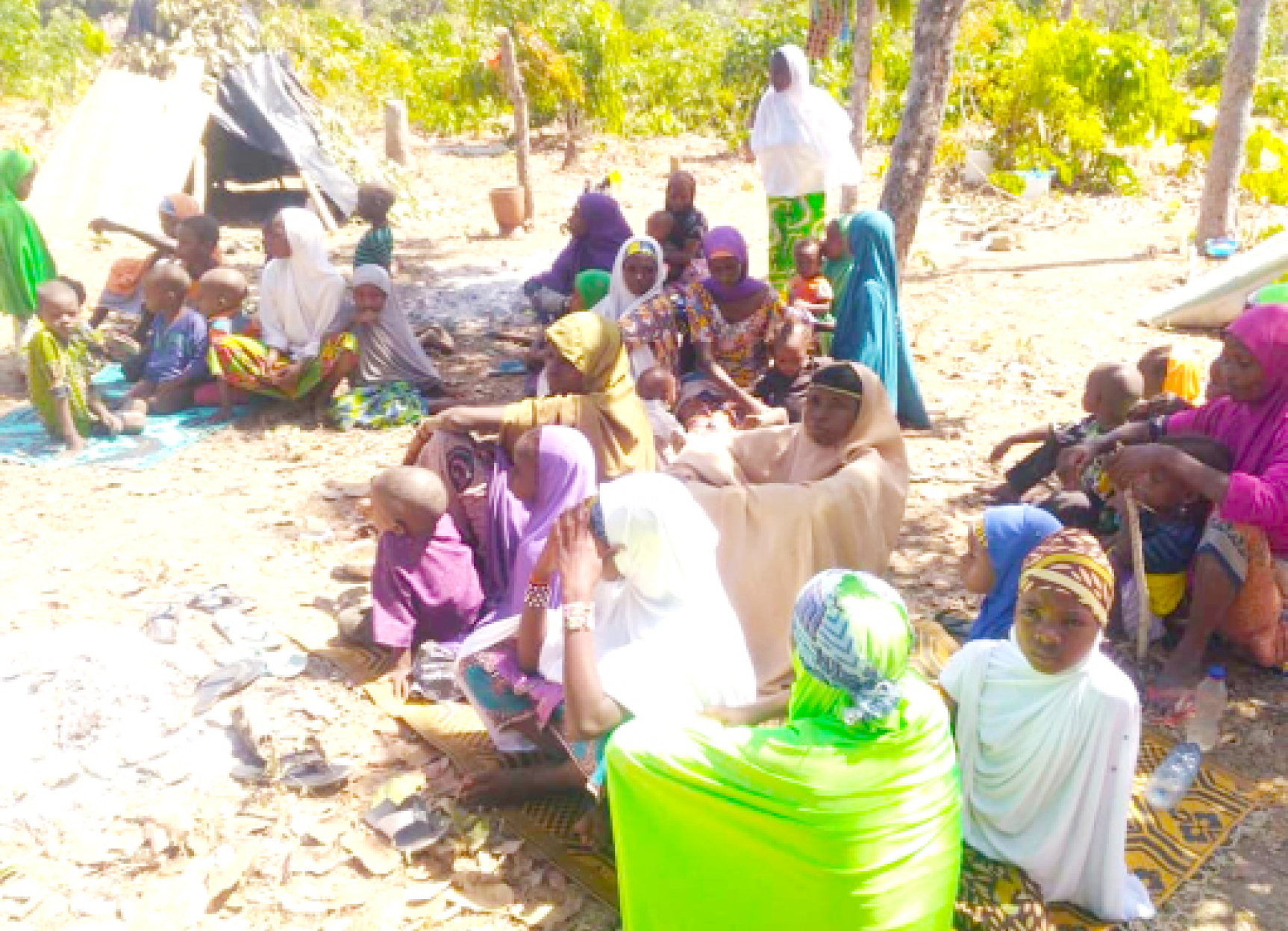Following an eviction order that targeted Fulani herders to vacate some parts of southern Nigeria due to growing insecurity, herders from Ladduga who migrated to the South West between six to eight years ago have returned home and narrated how they watched as thugs burnt their belongings.
At least 107 herders have returned to Ladduga community in Kachia Local Government Area of Kaduna State following an eviction order that targeted Fulani herders in the South West.
- How Yola-based mother of two died during sex with lover
- Beef boycott flops in Lagos, Ogun, Oyo, others
Having travelled to Oyo State from Ladduga some six to eight years ago, those who returned narrated harrowing experiences of how they lost their homes, food and cattle in a crisis they knew almost nothing about.
During a visit to Ladduga community, our correspondent gathered that the over 100 returnees were gradually settling down among friends and family.
Relatives, friends and well-wishers have assisted them with personal effects as our correspondent notice that they have also began the process of building new huts with tree branches and straws.
Narrating their experience, one of the women who identified herself as Malama Hadiza said she spent three days in the bush with her children, adding that there was no food or water for them.

“We left all our belongings while fleeing for safety; our cloth, cooking utensils and our homes and animals,” she said, adding that: “We walked in the forests for three days, it was cold and we had nothing to use as cover.”
Hadiza, who is now among relations and friends in Ladduga, said even though the community had accommodated them and assisted them with certain items, they were still in need of government’s intervention.
“They burnt our homes, our food and even our cattle. They chased us out and burnt everything,” said Aminu Sale, who narrated that their assailants had invaded their rugga (settlement), shooting and chased them out of the community.
“I left Ladduga six years ago and settled in Oyo State. Now, I have returned with nothing.
I hid in the bushes, in between huge rocks and waited while the gunmen ransacked and burnt our community. Later, when they were done and left, I escaped to safety,” he said.
Ibrahim Abdullahi, who was also originally from Ladugga, said he travelled to Oyo State eight years ago while in search of grazing field for his cattle. But he said following the security challenge in the area, he had to abandon his animals and is no longer certain of their safety.

Daily Trust reports that Ladduga – a Fulani settlement within the Ladduga Grazing Reserves in Kachia LGA of Kaduna’s southern senatorial district, has become a safe haven of sorts for Fulani herders who lost their homes following the crisis in the southern Kaduna axis, especially Zangon Kataf and Kauru LGAs.
While at the community, our correspondent came across Isuhu Haruna, a 37-year-old father of 10 who came from Kontagora Local Government Area of Niger State with his family.
Haruna, who pleaded with the government to support them with food and clothes, said he moved his family from Niger State to Ladduga following the lingering crisis and unrest in the area.
Speaking on the status of the returnees, Ardo of Ladduga, Goje Hassan, said contrary to reports that over 4,000 Fulani had migrated to the community from the south western region of the country, only 109 who were originally indigenous to the area had returned home.
The Ardo said all the 107 Fulani that relocated from Oyo State to Ladduga Grazing Reserve are herders that were initially from the community but left in search of grazing fields for their animals.

“All the Fulani that have returned to their homes here in Ladduga are peace loving and have a good record of promoting peaceful coexistence even before they left Ladduga to the South West,” he said.
Dr. Saleh Momale, a lecturer at the Bayero University Kano, who visited Ladduga also corroborated the Ardo’s position that 107 people originally from the area had returned home due to the current security challenges in the South West.
Dr. Momale explained that the returnees were members of five families, and are indigenes of the area.
Having served as a former Permanent Secretary with the Kaduna State Peace Commission and a resident of Ladduga who took part in the factfinding mission, he said: “The first three families left here eight years back to the South West and later the second set of two families joined them after four years.”
Giving a hint as to what led to the attack in their Ruga, Ahmad Haruna, 47, who was among those that returned from Oyo State, said their houses were burnt down in Ite Local Government Area of the state following the crisis with the Yoruba community who accused the Sarkin Fulani of standing as guarantor for criminals.
“We don’t have issues with the Yoruba people in the area but they had issues with the indigenous Fulani of the area known as Borgo’en or Bargawa. They accused the Sarkin Fulani who is from the Borgo’en clan of sabotaging their efforts. So, when the issues came up with the Bororo’en, we decided to leave the region because they cannot differentiate between us and the Borogo’en,” he said.
Haruna, however said soon after they left, their homes were attacked, ransacked and burnt down.
“We escaped, but our cattle are in Ogun State and we don’t know how to get them back. Life has been difficult because there have been other challenges that over the years affected herders, including those indigenous to the south west,” he said.
According to him, “from threatening us to poisoning our cattle, we have suffered it all,” adding that some of their cattle have been moved to neighbouring countries like Benin Republic while others are within Ogun State. Apart from our homes, we lost domestic animals like goats and chickens among other items,” he said.

 Join Daily Trust WhatsApp Community For Quick Access To News and Happenings Around You.
Join Daily Trust WhatsApp Community For Quick Access To News and Happenings Around You.


